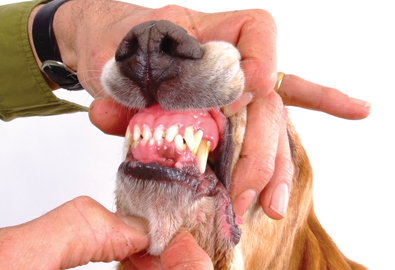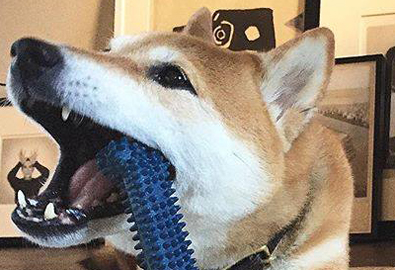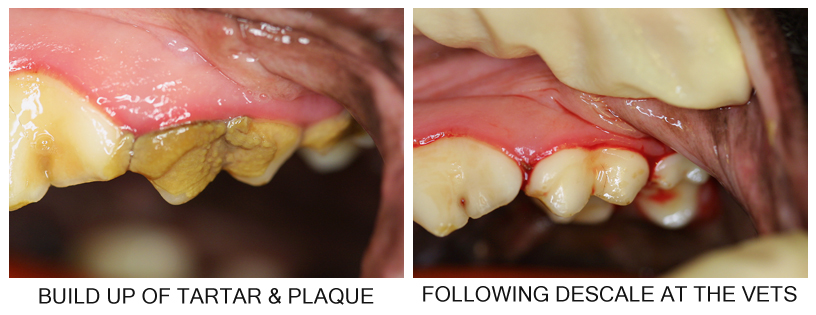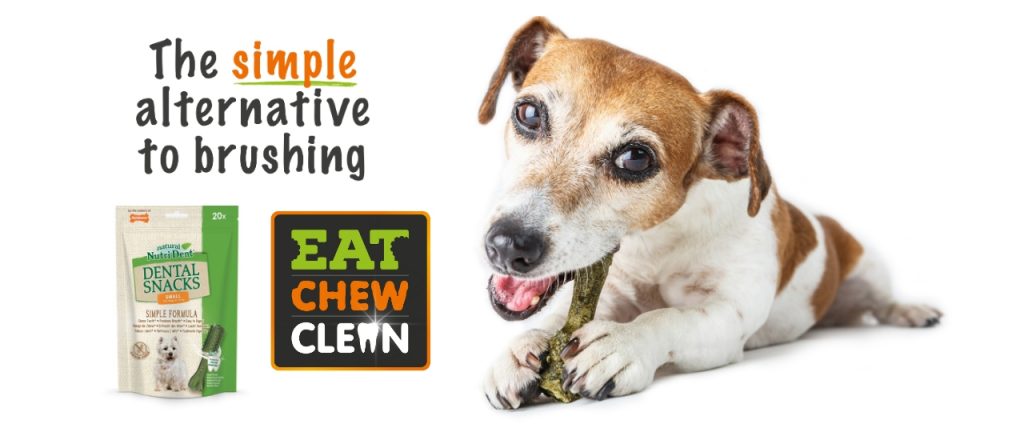Canine dental disease

Canine peridontal disease is a bacterial infection of the mouth which if left untreated could lead to tooth loss. Research also shows that there is a link between heart disease and canine periodontitis, as the bacteria present on the gums can enter the blood stream, and then latch on to the arteries around the heart, making it vital that you care for your dog’s teeth.
You should regularly check your dog’s teeth, making sure there is no sign of gum infection or tartar build up on the teeth, which can progress to bad breath, tenderness of the mouth (gum infection or gingivitis) and eventual tooth loss.
Plaque is the same for a dog as it is for us- a bacteria-laden film forming on the teeth, this can then calcify on the teeth to form tartar. If not kept under control, the bacteria get into the gum tissue, causing inflammation, and then attack the roots of the teeth. The jawbone in which the teeth are situated then begins to erode and eventually rotten teeth fall out.
Prevention is better than cure.
The treatment of Periodontal disease depends on how advanced the disease is, there are 3 stages.
The treatment in the early stage is focused around cleaning the teeth regularly and controlling the build-up of plaque.
You can help to reduce the build-up of plaque and tartar by following our EAT-CHEW-CLEAN routine:
Step 1 – Eating a Nutri Dent Snack daily to help remove plaque and freshen breath.
Step 2 – Giving your dog a Nylabone chew toy, the nice smooth surface of the bone will ‘rough up’ as your dog chews it, and the tiny bristles that raise on the bone act like a mini toothbrush which will help keep your dogs’ teeth clean by removing tartar and helping prevent build up.

A thorough clean is achieved by daily brushing with a dog formulated toothpaste – if you can’t do this then EAT-CHEW-CLEAN.
Stage 2 and 3 will require a professional clean at the vets, this is called a descale. Consistent cleaning will also need to be carried out at home to prevent any further disease spreading. In severe cases options become limited and extraction may need to be carried out.





